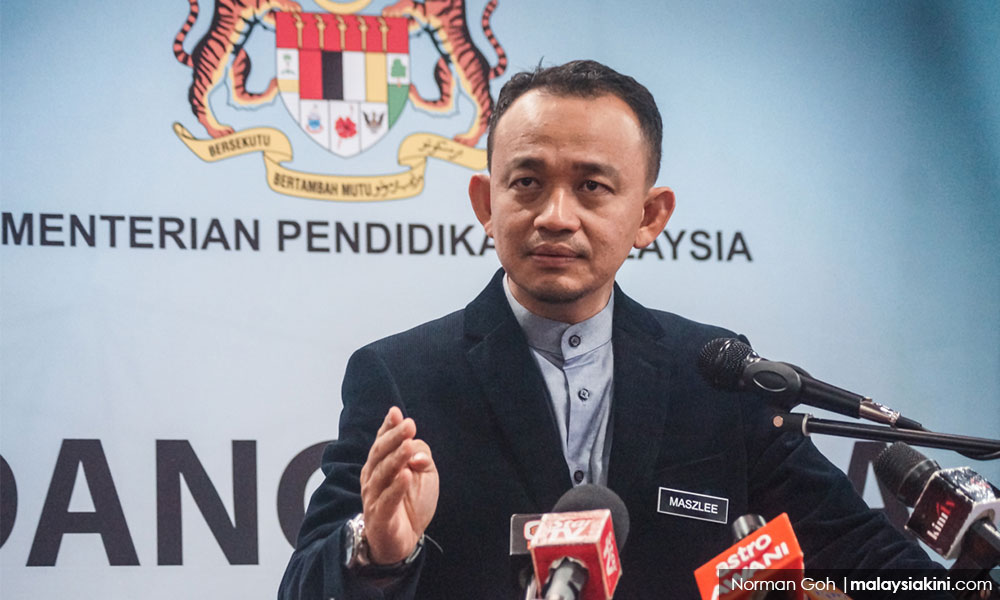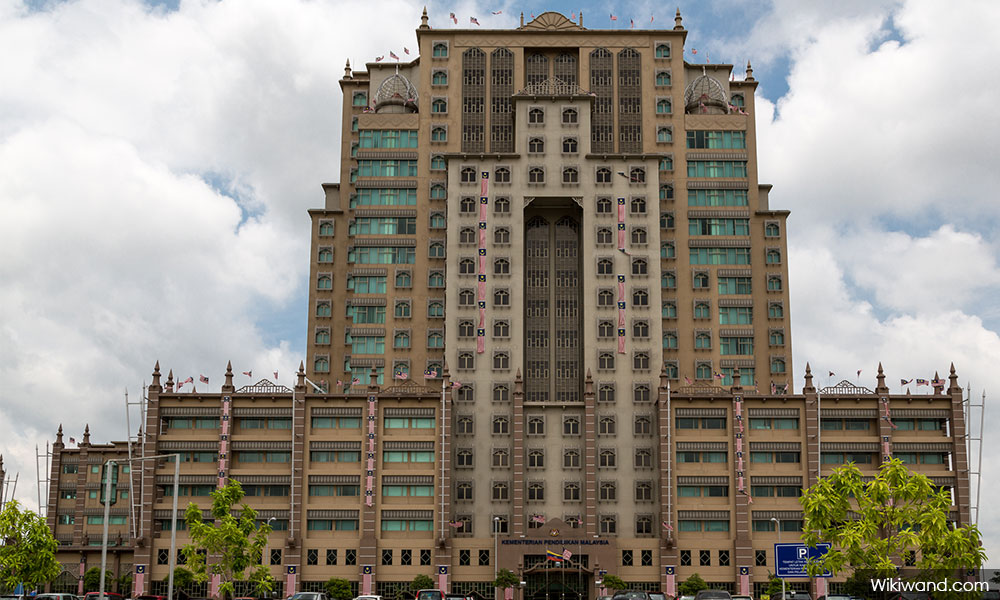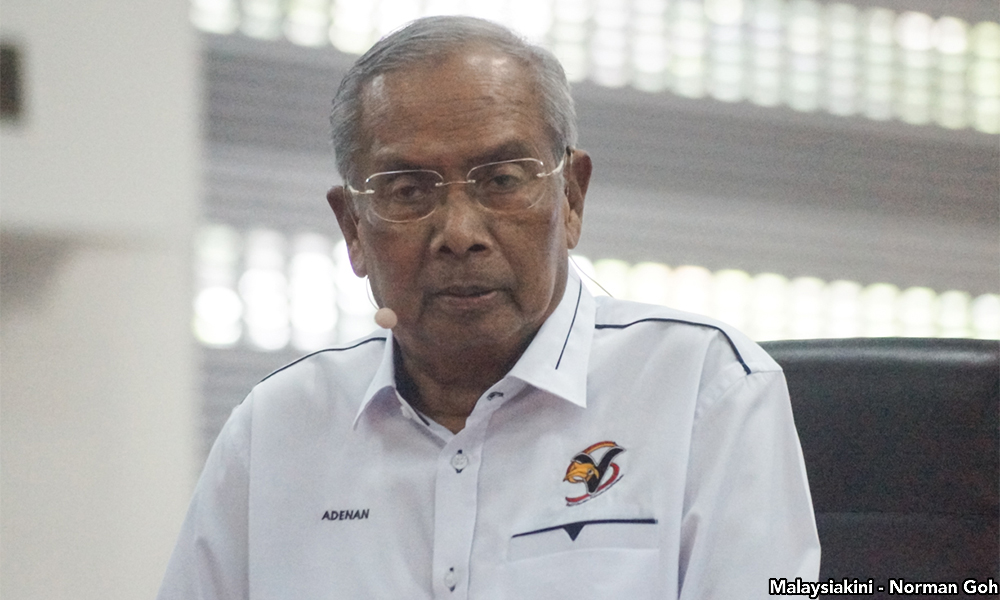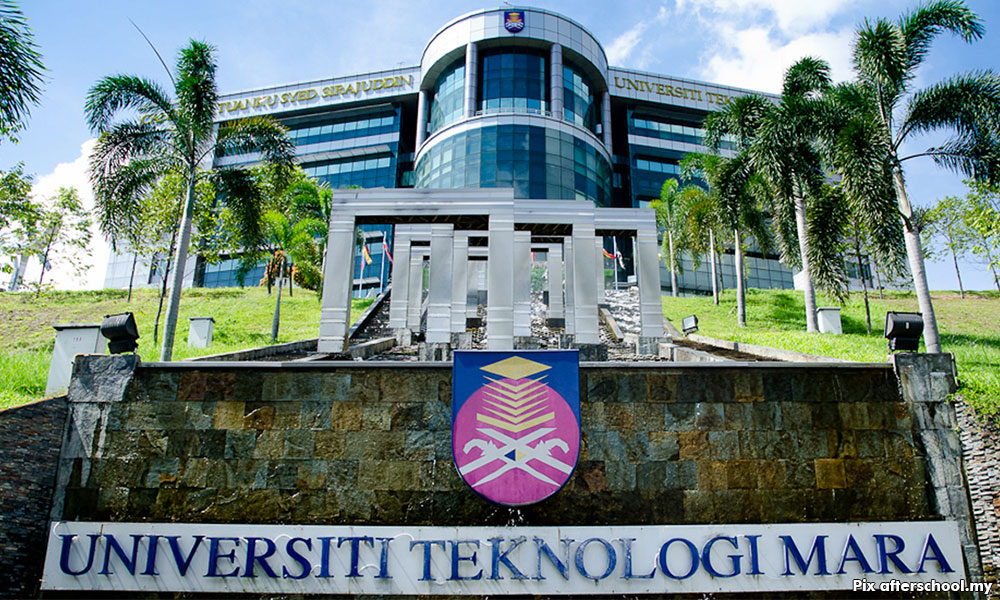COMMENT | Through all this pussyfooting over the recognition of the Unified Examination Certificate (UEC) by the Pakatan Harapan government, does it not make you wonder how their election manifesto was drafted, such as who took part in the drafting and how it was endorsed by their leaders?
One would have expected that the person they would finally appoint as the education minister to be in the committee to study the UEC before they endorsed it.
Well, from the backtracking that we have seen since the 14th general election and the utterances of Harapan leaders, especially by the new Education Minister Maszlee Malik, you would think that the supposedly democratic process through which the manifesto was drafted and eventually endorsed did not amount to much.
Was the Harapan election manifesto just ‘a piece of paper’ to be ripped apart after the elections?
It is clear that Harapan won the vast majority of the Chinese votes during GE14 mainly because its manifesto and its leaders promised to recognise the UEC – the school leaving certificate of Malaysian independent Chinese secondary schools that has been maligned by Umno since 1975.
Now Maszlee has insisted that any decision by the government to formally recognise the UEC will only be made “after a comprehensive and holistic study on the issue has been completed.”
“(The study will look at)…whether there is any impact from the formal recognition of UEC that could potentially compromise unity and harmony among Malaysians.
“Once again I would like to reiterate that whatever decision that we will eventually make with regards to formally recognising the UEC, it will be comprehensive and holistic, without compromising the status of Bahasa Malaysia as the national language,” he said.

Wasn’t this study done before the Harapan manifesto was endorsed by the coalition leaders? We know that DAP has all along recognised the UEC.
So has PKR, as their de facto leader Anwar Ibrahim recently reiterated. In fact, PKR president Dr Wan Azizah Wan Ismail already stated years ago in a visit to the Dong Jiao Zong headquarters that recognition of the UEC is purely a question of academic assessment for the Malaysian Qualifications Agency and not a political issue.
So who else in the Harapan coalition does not agree to the recognition of the UEC and why did they agree to have this clause in the their manifesto in the first place?
A threat to national sovereignty?
The recognition of the UEC has featured in practically every general election since 1986. The litany of reasons given by the government for not recognising the certificate through the years has gotten more and more bizarre.
They used to say that the UEC’s curriculum was not up to the mark or they would say that it is not based on the national curriculum and education philosophy. Now the monarchy has even been brought up since it is claimed the UEC threatens national sovereignty.
A local professor has even twisted historical facts by claiming that since the Chinese educationists had chosen to reject the national education system in 1961, they should be left to their own devices.
To counter this allegation that mother tongue education of non-Malays is a threat to sovereignty, let us look at the current reality surrounding education in Malaysia: In recent years, international schools using English and other foreign languages have proliferated in our country.
According to the Economic Transformation Programme, there are more than 81 international schools in operation nationwide.
Now, if this concerted effort to promote foreign schools in Malaysia is not seen to be a threat to national sovereignty, then why should the 60 Malaysian independent Chinese secondary schools?
Foreign students a threat too?
Now, we are all aware of the fact that our local public and private higher learning educational institutions enrol students from all over the world. Simple questions to the Education Ministry will show that the reason for not recognising the UEC is completely untenable:

How do students from Kazakhstan or Bosnia or China gain admission into Malaysian tertiary education institutions when their respective education systems do not follow our national system? Do our institutions impose a requirement of SPM credit in Bahasa Malaysia and a pass in History on these foreign students to study in institutions using English as medium of instruction?
From the study of the UEC by Harapan drafters of their manifesto, can they tell us which aspect of the National Education System is the UEC syllabus alleged to not follow?
Is the History syllabus of the UEC not ‘Malaysian’ enough? Were there no Chinese members of the Harapan manifesto drafting committee who could have told their comrades that the history syllabus of the UEC is certainly Malaysian and international too if we believe in holistic learning?
Such being the case, how can any foreign student from any part of the globe qualify to enrol in a Malaysian tertiary institution since their syllabus cannot possibly be as ‘Malaysian’ as that of the UEC?
M’sian Chinese secondary schools have existed since 1923
For those who are unfamiliar to our nation’s history – including the aforementioned local professor, Chinese secondary schools have existed in our country since 1923 when the Chung Ling High School of Penang started its secondary-level classes.
By 1957, there were some 86 Chinese secondary schools in Malaya. It was only after the 1961 Education Act that many of these schools were forced to become English-medium – note, not Malay-medium – at the time because they could not sustain their schools without government assistance (Prime Minister Dr Mahathir Mohamad should perhaps note that this shows that not all Chinese Malaysians are rich and can sustain their schools).
Thus after 1961, only 14 Chinese secondary schools remained ‘independent’ schools because they wanted to keep their mother tongue system at all costs. It was after the independent schools revival movement in the 1970s that the number climbed to 60 schools with endless fundraising drives.
In 1975, when independent Chinese secondary schools decided to hold their first unified examination, Chinese education leaders were summoned to Parliament by then-education minister Mahathir and were told in no uncertain terms to cancel the examination, “or else.”
The Chinese education leaders carried on regardless, and the UEC has been held every year since. To date, there has never been a leak in any UEC examinations and the curriculum and marking of exam scripts are carried out every year with professional precision.
Today, hundreds of foreign tertiary institutions around the world recognise the UEC and our independent Chinese secondary schools students are found in countries all over the globe, including France, Germany and Russia.
Since the 1980s, the National University of Singapore (NUS) has been poaching hundreds of top UEC students not only for their academic excellence but also for their trilingual capabilities in an effort to balance the cultural mix of their Anglophile Singaporeans.

The late Adenan Satem, former Sarawak chief minister, had said that the Education Ministry is stupid not to recognise the UEC since this policy failure has led to a brain drain of our talented human resources.
Forty-year suspension
Thus, if the MQA is a professional accreditation institution without political constrictions, it would spell out in no uncertain terms what its audit of the UEC has concluded.
It does not matter if the requirements of the MQA are far more stringent than that of NUS; it just has to spell out in no uncertain terms what the results of that audit are. The government cannot simply suspend a purely professional decision for more than forty years.
It should be pointed out at the outset that, in sharp contrast to foreign students, Bahasa Malaysia and English are compulsory language papers in the UEC and many independent Chinese secondary schools also run the SPM in the fifth secondary year. This easily demolishes the myth that these students only study in Chinese.
To be fair to our civil service and local tertiary institutions, if they require SPM credit in Bahasa Malaysia for UEC holders, that is reasonable. Nevertheless, the academic accreditation of the UEC by MQA is a separate matter altogether.
Malaysians should also know that there are hundreds of non-Chinese students in independent Chinese secondary schools, and almost 100,000 in Chinese primary schools.

This is in sharp contrast to Universiti Teknologi Mara (UiTM) which does not admit any non-bumiputera – even though non-Bumiputera taxpayers also pay for the public institution.
Remember that there are more than 100,000 bumiputera students in UiTM, while there are only 85,000 Chinese, Malay, Indian and indigenous peoples in the 60 independent Chinese secondary schools.
So which of these systems would you consider better promotes intercultural understanding and national unity?
For sure, the bumiputera-only policy at UiTM violates the International Convention for the Eradication of Racial Discrimination (ICERD) that the new foreign minister is keen to ratify.
Recognise the UEC now
The truth is that, through the years the UEC has become a political issue since Umno refuses to recognise the independent Chinese secondary school system because of their Malay agenda, a policy that is holding back creative development of our human resources.
The pussyfooting we see now from the Harapan government is nothing more than the lack of courage and political will to break from the years of Umno bigotry and racism. This is the price we pay for adhering to race-based political parties.
Recognising the UEC will allow independent Chinese secondary school graduates to be admitted into our public tertiary institutions as well as the civil and armed services, which is the stated intention of the new government.
This will help to promote greater integration among Malaysians and also alleviate the financial plight of those independent Chinese secondary school graduates who cannot afford tertiary education in the private colleges or abroad.
More fundamentally, the reneging on their election promises by Harapan leaders is patent dishonesty.
As Caliph Abu Bakr so strongly pronounced: “The greatest truth is honesty and the greatest falsehood is dishonesty.” But Plato was more cynical when he said: “Honesty is for the most part less profitable than dishonesty.”
KUA KIA SOONG is Suaram adviser.
The views expressed here are those of the author/contributor and do not necessarily represent the views of Malaysiakini.

